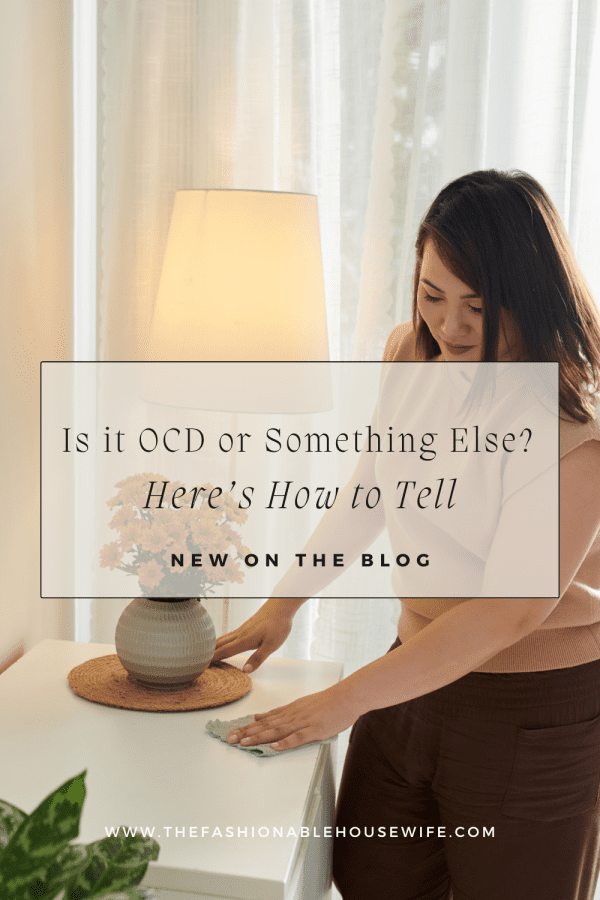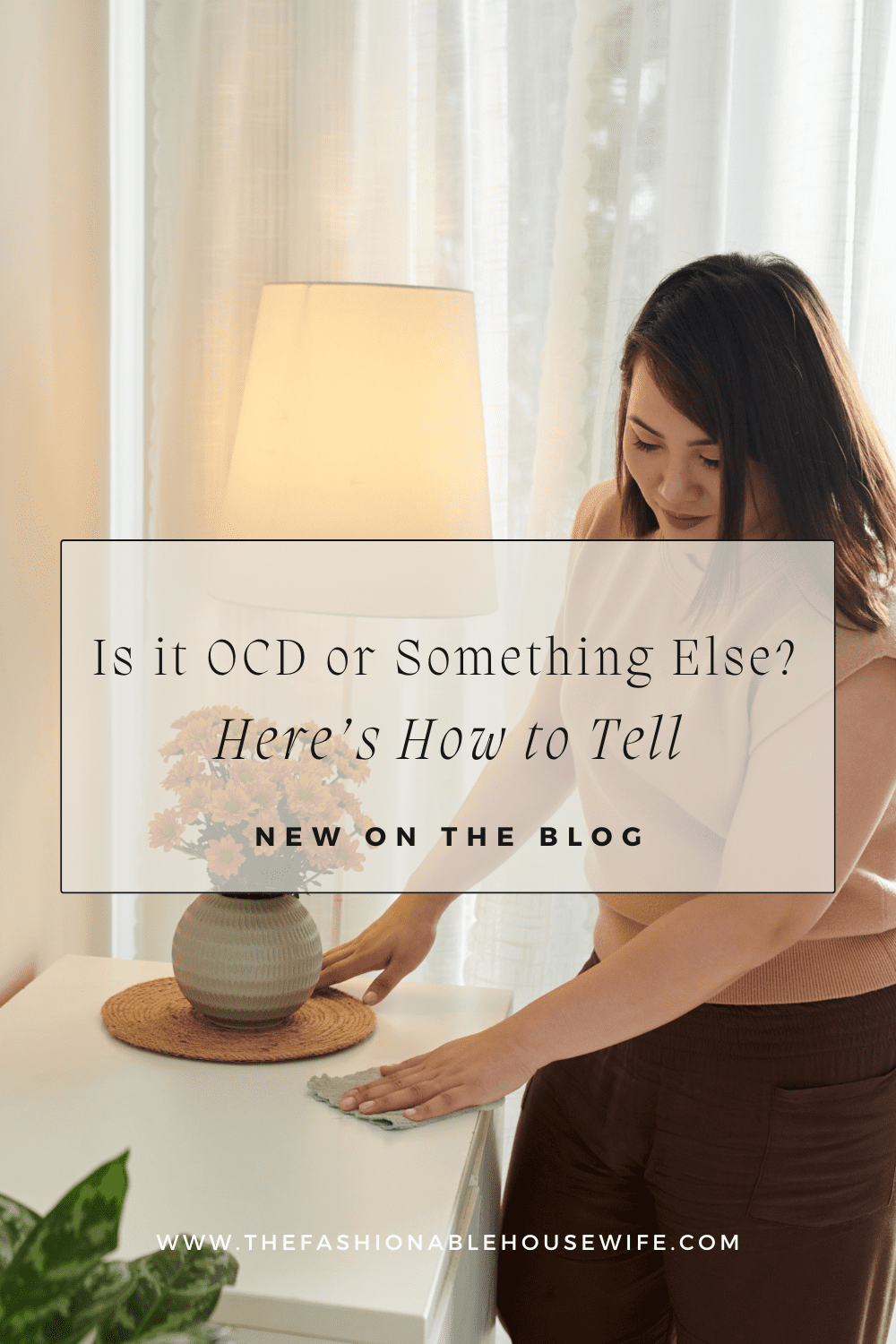Is it OCD or Something Else? Here’s How to Tell

It is not uncommon for someone to describe themselves as a bit OCD when commenting on how obsessive they are about certain habits, such as keeping their desk completely clear of clutter at work.
These comments are frequently delivered as a harmless line that is mainly designed to accentuate a quirk or preference they might have. Unfortunately, when the use of a condition such as OCD enters everyday language in that way it can easily blur the lines between simple personal personality traits, and what is a very real mental health condition.
If you talk to a therapist in Arlington TX, for instance, they will confirm that suffering from Obsessive-Compulsive Disorder (OCD) is way more than liking things neat or double-checking the locks. It’s a diagnosable disorder that has the capacity to seriously disrupt daily life, relationships, and your overall well-being.
There is no question that because OCD traits are similar to other conditions, many of us have habits that appear similar making it far too easy for the lines to become blurred. That raises the question, is it OCD or something else?
Let’s take a closer look at what OCD actually is, how it differs from other mental health issues, and what classic signs suggest it’s time to seek professional help.
OCD traits explained
A good starting point would be to explain exactly what OCD really is. In a nutshell, OCD is defined by its two main components, obsessions and compulsions.
Obsessions are described as persistent, intrusive thoughts, images, or urges that cause distress. A prime example of this would be when someone might constantly worry that their hands are contaminated with germs, even when they have just washed them thoroughly.
Compulsions are the repetitive behaviors or mental acts a person feels driven to perform to relieve the anxiety caused by those obsessions. Basically, the compulsive element of the condition is triggered by the obsession. The two go hand in hand. This leads to repeating the same action over and over, such as washing your hands to make sure they are clean. It can also be the case that someone with OCD will feel the urge to silently repeat a phrase as a way of trying to banish bad or negative thoughts from their head.
This cycle of obsession and compulsion is debilitating, time-consuming, and often feels out of control. As you can see, there is clear blue water between having simple personal habits and preferences that you can manage and OCD behaviors that are fueled by anxiety and don’t feel controllable.
Without question, everyday habits and OCD are clearly very different.
The relationship between anxiety disorders and OCD
OCD is classified as an anxiety disorder, and it shares features with other anxiety-related conditions. Generalized anxiety disorder, for instance, involves excessive worrying about a range of issues, from finances to health. While this condition may involve repetitive thought patterns, it doesn’t usually lead to compulsive rituals the way OCD does.
Panic disorder, another anxiety condition, involves sudden episodes of intense fear, often with physical symptoms like a racing heart or shortness of breath. Though OCD can trigger panic, its core revolves around the obsession-compulsion cycle rather than sudden panic attacks.
It is highly relevant to understand the subtle but meaningful distinctions between a range of anxiety disorders and OCD. This helps to choose the right diagnostic path. In essence, while all anxiety disorders involve heightened worry, OCD specifically centers on the repetitive, ritualistic behaviors linked to intrusive thoughts.
When OCD intertwines with other mental health challenges
It’s not unusual for someone with OCD to also experience depression, social anxiety, or even ADHD. Unfortunately, this overlap can complicate diagnosis.
An example of this would be when a person with ADHD struggles with attention and organization. This behavior can quite easily be confused with the compulsive checking or repeating of tasks seen with OCD.
It is this sort of overlap that reinforces the need for professional evaluation. A mental health provider is trained to accurately analyze the symptoms, identify what’s driving them, and then recommend the right treatment.
Therapy is a viable solution
The good news is that OCD and related conditions are highly treatable. The most common and effective form of therapy used is Cognitive Behavioral Therapy (CBT), and more specifically, a method called Exposure and Response Prevention (ERP).
ERP is seen as particularly effective as it works by gradually exposing a person to their obsessions without letting them perform the usual compulsion. Over time, this approach helps to break the cycle of obsession and compulsion. It helps retrain the brain to tolerate uncertainty and anxiety.
Other therapeutic approaches include Acceptance and Commitment Therapy. This can also help people learn to live with intrusive thoughts without being controlled by them.
Remember, therapy isn’t just about reducing compulsions, it’s also a viable pathway to restoring quality of life. Many people with OCD avoid certain situations, or suffer poor careers or relationships because of their symptoms.
With the right treatment, there is a clear opportunity to take back control.
Knowing when to seek help
It’s not always easy to know when it’s the right time to seek professional support. A good guide to that would be when your thoughts or behaviors are consistently interfering with your daily life.
If you are spending hours each day on rituals, or finding that intrusive thoughts are making it difficult to focus at work or enjoy relationships, these things should be a red flag to suggest you need to seek professional help in the form of a therapist. A professional in this field can help clarify what’s happening and guide you toward the
Not every quirk or individual habit means you have OCD, but when intrusive thoughts and repetitive behaviors begin to dominate daily life, it’s something worth taking seriously. Distinguishing OCD from general anxiety, or related conditions isn’t always straightforward, but understanding the core cycle of obsessions and compulsions helps shed light on the difference.
With therapy there to help and support you, OCD doesn’t have to define your life.

